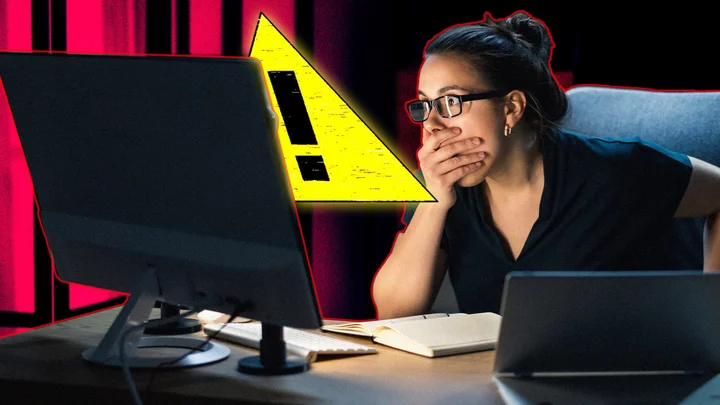Let’s set the scene: A celebrity posts something contentious online. Then, after receiving a fair amount of blowback, that celebrity proclaims, “I got hacked!”
Famous people are humans, too, and they say ridiculous things or make unsubstantiated claims on occasion. And sometimes, these celebs really are victims of a hacking incident. Either way, their public shaming gives the rest of us an opportunity to learn to mind our manners online or develop safer browsing habits and avoid the humiliation they endure.
What Is Two-Factor Authentication?What Can You Do to Avoid Getting Hacked?
If you're a fresh victim, our condolences. Check out our guide to what to do after you've been hacked.
After you solve any issues related to identity theft, malware, or ransomware, it's time to take preventative steps to avoid getting hacked again. Follow these steps to keep yourself safe:
DIFFICULTY Beginner DURATION 10 minutes TOOLS ComputerMobile Devices
Step 1: Use Mobile-Based Payment Systems
One easy way to be safer is to use mobile-based payment systems instead of credit and debit cards when you can. Apple Pay and Google Pay are more secure than physical cards, and you can use these payment systems at brick-and-mortar stores, too. Additionally, protect your mobile device with a biometric signature or a strong passcode and keep the device with you.
(Credit: Westend61 / Getty Images)Step 2: Install and Use a Password Manager
A PCMag survey revealed that many of you are using the same passwords for every login online. Stop doing that, please. Using the same password everywhere leaves you open to attacks. Instead, get a password manager, even a free one, and it will help you create strong, lengthy, unique passwords for your many online logins. Password managers not only generate and remember strong passwords for you, but also fill them in automatically on login pages in a secure way.
(Credit: courtneyk / Getty Images)Step 3: Enable Multi-Factor Authentication on Your Accounts
If a malicious actor gets a hold of your login information, stop them in their tracks with multi-factor authentication. Multi-factor means you need more than one factor to log in to an account. Typically, we think of three different factors: something that you know, something you are, or something you have. Something you know is usually a password. Something you have can be a physical security key or an authenticator app on your phone. Something you are can be a fingerprint scan or facial recognition.
(Credit: Elena Uve / Getty Images)Step 4: Don't Fall for Phishing
Phishing is an attempt to steal data or money, often using links in an email, SMS, online ad, or on a fake website. The key to avoiding a phishing link is paying attention. If your browser alerts you about a potentially dangerous message, unsafe content, or a malicious website, heed the warning. Avoid clicking links, entering data, or downloading attachments from unknown or untrustworthy sources.
(Credit: Sadi Maria / Getty Images)Step 5: Install a Security Suite
Using security software can mitigate some of the damage done by determined hackers. A robust security suite fights off malware, adware, and spyware and even provides some phishing protection.
(Credit: iBrave / Getty Images)Step 6: Get Help From the Experts
The US Federal Trade Commission has an advice site for identity theft victims. It includes checklists, sample letters, and forms you need to fill out to get your life back in order after an online attack. Take a look at this helpful resource if you suspect you are a victim of identity theft.
(Credit: Korrawin Khanta/EyeEm/Getty Images)Step 7: Stop Oversharing on Social Media
There are plenty of security concerns that come from posting your life's details online. Your public posts can make you easy targets for advertisers, scammers, spammers, stalkers, and every other undesirable person online. Click to learn how you can lock your social profiles down and keep criminals at bay.
(Credit: gorodenkoff / Getty Images)Deter Hackers With Safe Online Behavior
The key to staying safer online is to keep a tight hold on your personal data and login credentials. Widespread passkey adoption could make passwords a nuisance of the past, but as we've seen year after year, cybercriminals adapt to changing technologies quickly.
If you're hoping to reduce your online footprint to limit opportunities for crooks, check out our guide to completely disappearing on the internet.









